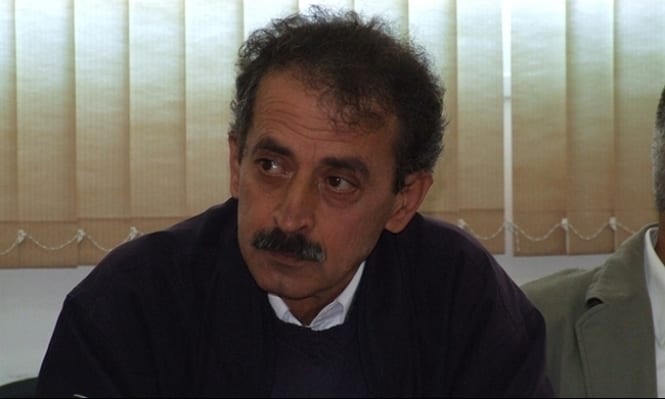I am neither a supporter of Qatar nor do I take joy in its misfortune. I am also not a supporter of “diagnosing” major political issues and differences, but the recent measures taken by Saudi Arabia, the UAE, Bahrain and Egypt against Qatar indicates two things. First, Saudi Arabia has gained strength from Trump’s presidency and has tried to dominate the control of the so-called “Sunni axis” with no competition. The competition I am referring to here is Turkey, not Qatar, and this is in light of the mandate that Saudi Arabia gave itself in the festivals welcoming Trump, during which it rallied an unprecedented majority of Gulf, Arab and Muslim leaders to pledge allegiance to it and Trump.
Second, it determined the direction of the conflict in the region as a Sunni-Shia conflict and not an Arab/Islamic-Israeli conflict. Therefore, Israel has been transformed from an enemy of the Arabs and Muslims into their ally in a war against Iran, which Trump gave the green light to wage.
Hence, a new phase has been launched focusing on Iran; a phase dominated by new rules and alliances in which the “conflict with Iran” will shift from a conflict and fight over areas of influence in Syria, Iraq and Yemen, to the heart of the Arab/Persian Gulf. This means it will be taken inside the home, or to be more accurate, taken against the home, and Tehran’s latest attacks are the first sign.
Read: Hamas and the Palestinian cause are at the heart of the Gulf storm
![US President Donald Trump (L) is welcomed by Israeli Prime Minister Benjamin Netanyahu (R) in Tel Aviv on 22 May, 2017 [Daniel Bar On/Anadolu Agency]](https://i0.wp.com/www.middleeastmonitor.com/wp-content/uploads/2017/05/2017_5_22-trump-lands-in-israel20170522_2_23814308_22385875.jpg?resize=500%2C333&ssl=1)
US President Donald Trump (L) is welcomed by Israeli Prime Minister Benjamin Netanyahu (R) in Tel Aviv on 22 May, 2017 [Daniel Bar On/Anadolu Agency]
While some, despite criticism, paid little attention to the Saudi silence on Trump’s statement, which declared Hamas and Hezbollah part of the terrorist organisations to be combatted, the repetition of this statement, last week, by Saudi Foreign Minister Adel Al-Jubeir, in the context of the justification of the actions taken against Qatar, which supports “terrorist” movements, as he put it, including Hamas and Hezbollah, is a dangerous indicator of a new/old Saudi approach aligned with Israel. This approach puts all the resistance movements, regardless of their sectarian origins, in the category of terrorism.
Read more: Hamas: Israel will exploit Arab rift to kill our people
We understand, but are not understanding of Saudi Arabia’s position on Hezbollah, which lies in the “Shia axis”, according to the sectarian division, and which is categorised in the Kingdom as a terrorism organisation due to Saudi Arabia’s considerations regarding the Lebanese and Syrian arenas and Hezbollah’s role in them. However, considering Hamas, which falls within the “Sunni axis” and which works in the Palestinian territories occupied by Israel, the label of “terrorist organisation” is incomprehensible and surprising at first glance, especially in light of the negotiations to normalise relations between the movement and the Egyptian government, which had accused Hamas of supporting terrorist operations in Sinai.
Read: Resistance is not terrorism say Palestinian diaspora
The stigmatisation of Palestinian and Arab resistance movements, regardless of their alliances or their regional role and our agreement or disagreement with such a role, is unacceptable and dangerous because it provides a free service to Israel. This is because Israel is working hard to classify the national Palestinian and Arab struggle as terrorism and topple its political and moral legitimacy. Such measures will allow Israel to kill the resistance and its supporters, and establish the foundations of its colonial project and normalise relations with the region’s countries without withdrawing from the territories occupied in 1967 and without recognising the legitimate rights of the Palestinian people to return, self-determination and the establishment of an independent state.
#PalestinianLivesMatter
The categorisation of Hamas, which forms the spearhead of the remaining Palestinian resistance movement, as a terrorist movement, does not stem from its affiliation with the Muslim Brotherhood, which is undesired by Saudi Arabia, nor from its links to Qatar, which embraces the movement, as many think. This affiliation and link is nothing new and Saudi Arabia had tolerated it over the past years. The categorisation is directly linked to the American-Saudi alliance, which Israel is planning to be an active part of, after removing all obstacles to its entry, especially Hamas, Hezbollah and other resistance mov
Translated from Arab 48, 8 June 2017
The views expressed in this article belong to the author and do not necessarily reflect the editorial policy of Middle East Monitor.


![Emir of Qatar Sheikh Tamim bin Hamad Al Thani (C) presents a gift to King of Saudi Arabia Salman bin Abdulaziz (L) during their meeting at Royal Palace in Doha, Qatar on 5 December, 2016 [Bandar Algaloud/Anadolu Agency]](https://i0.wp.com/www.middleeastmonitor.com/wp-content/uploads/2016/12/20161205_2_20517109_16681557.jpg?fit=1200%2C788&ssl=1)









